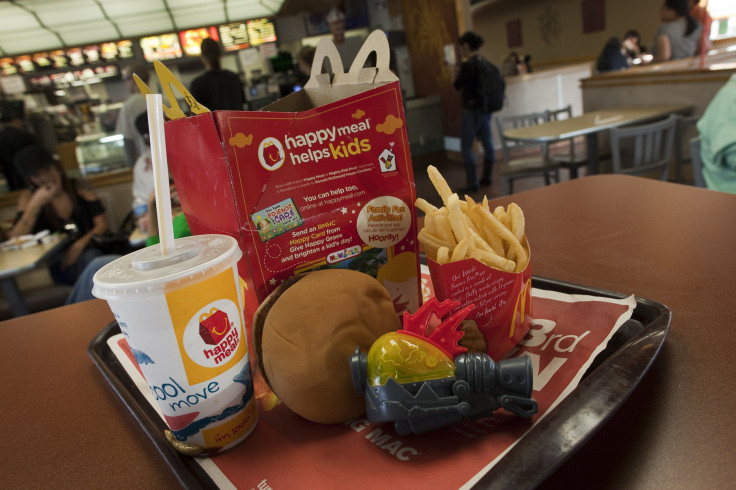NYC 'Happy Meals' Bill: Childhood Obesity Rate Could Fall If Nutritional Requirements Implemented

A bill introduced in New York City that would implement nutritional requirements for kids' meals at fast-food restaurants has the potential to curb childhood obesity if passed, according to an NYU Langone Medical Center study. Under the "Happy Meals" bill, fast-food chains would be required to include a serving of fruit, vegetables or whole grain in any meal marketed to children using toys or promotional items.
The bill, which was proposed by New York City Council member Ben Kallos, also would limit the meals to 500 calories or less, with fewer than 35 percent of calories coming from fat, only as much as 10 percent from saturated fat, fewer than 10 percent from added sugars and no more than 600 milligrams of sodium.
NYU Langone researchers launched a study to determine whether these changes would have any nutritional impact on New York City children. More than 14 percent of 2- to 4-year-olds in New York City are overweight, according to a 2011 study from the Centers for Disease Control and Prevention.
The study, which was published Monday in the American Journal of Preventive Medicine, looked at the receipts for the meals of 422 children at multiple fast-food restaurants offering children's menus, including Burger King, McDonald's and Wendy's.
Researchers determined that 98 percent of kids' meals would not meet the nutritional standards outlined in the bill. On average, adults purchased meals with around 600 calories for each child, with 36 percent of the calories attributed to fat.
If the meals were changed to meet the proposed criteria, there would be a 9 percent reduction in calories, or about 54 calories, and a 10 percent drop in sodium and calories from fat.
"While 54 calories at a given meal is a small reduction, small changes that affect a wide number of people can make a large impact," said Brian Elbel, lead author and associate professor in the Department of Population Health at NYU Langone and at NYU Wagner. "Passing the bill could be a step in the right direction, though no single policy can single-handedly eliminate childhood obesity."

Researcher Marie Bragg suggested that lawmakers also could expand the initiative by targeting the fast-food chains' marketing approaches.
"Policymakers could consider broader restrictions on marketing, similar to legislation in Chile that banned any use of toy premiums in children's meals in 2012," said Bragg, an assistant professor in the Department of Population Health at NYU Langone and at the NYU College of Global Public Health.
© Copyright IBTimes 2024. All rights reserved.






















